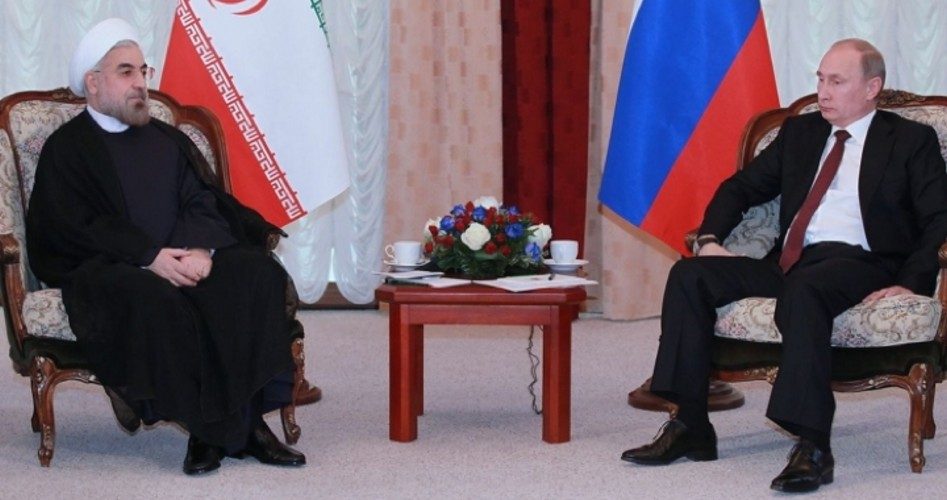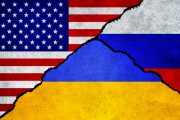
It appears the Obama administration and Secretary of State John Kerry were against Iran joining the U.S.-led coalition against Islamic State terrorists before they were for it. While Iran has nearly disappeared from world news reports since the organization calling itself the Islamic State of Iraq and the Levant began capturing territories won by United States forces in the Iraq War, tensions between Washington and Tehran have been evident in the efforts the U.S. has made in forming a regional coalition against the jihadist war in Iraq and Syria that has featured the public beheading of two American and one British journalist. The United States worked to exclude Iran from a French diplomatic meeting about the militants, the Washington Post reported, but has, nonetheless, sought Iran’s influence in the coalition to defeat the Islamic State.
“The coalition required to eliminate ISIL is not only, or even primarily, military in nature,” Kerry said at a recent United Nations Security Council meeting about the militants. “It must be comprehensive and include close collaboration across multiple lines of effort…. There is a role for nearly every country in the world to play, including Iran.”
Iranian president Hassan Rouhani has a given qualified endorsement to the U.S.-led attacks on Islamic State targets, approving of them in Iraq, where military assistance has been requested by the government, but not in Syria where it has not.
“Whatever steps they take, the legitimate sovereign government of the country must be informed and give its genuine consent,” said Rouhani, speaking to reporters while in New York to attend the United Nations General Assembly. Criticizing Western nations for being slow to come to Iraq’s defense in the war being waged by the Islamic State, Rouhani said the U.S-led coalition should join Iran in that effort, rather than Iran joining the coalition. “Had it not been for Iran’s timely assistance, many of the Iraqi cities would have fallen to the hands of these vicious terrorists,” he said.
“Iran, of course, was already in the conflict before the US war began,” wrote Jason Ditz at Antiwar.com, noting Iranian troops provided to the Iraqi government for its defense against the militants and the coordination between Iran and Syria in anti-ISIL operations in that country. Rouhani had previously dismissed the invitation to join the U.S. coalition as “ridiculous” and, in an interview with NBC News, seemed to mock President Obama’s pledge that no U.S. ground forces would be involved in the campaign to, in Obama’s words “degrade and ultimately destroy” the Islamic State.
“Are Americans afraid of giving casualties on the ground in Iraq? Are they afraid of their soldiers being killed in the fight they claim is against terrorism?” the Iranian president asked.
The United States has not had normal relations with Iran since 1979, when Washington severed diplomatic ties with Tehran over the government-sanctioned invasion by militant Iranians of the U.S. embassy there and the holding of 52 Americans hostage for 444 days in 1979-80. The conflict grew out of the sanctuary that the United States had provided for the deposed and dying Shah of Iran, whom the Islamic revolutionary government wanted to put on trial for crimes against the people. Iranians were also bitter over the role the American Central Intelligence Agency had played in the coup that overthrew the democratic government of Iran and put the Shah on the “peacock throne” in 1953. In his State of the Union address in 2002, President George W. Bush, linked Iran with Iraq and North Korea as part of the “the axis of evil” over Tehran’s support of terrorist activities in the Middle East. The Obama administration has lately been in the awkward position of seeking cooperation in its war against the Islamic State terrorists from two nations against whom the United States and its European allies have imposed harsh economic sanctions — Iran over that country’s nuclear program and Russia over its support of pro-Russian separatists in Ukraine.
Both the Bush and the Obama administrations have led economic boycotts of Iran, based on claims the Tehran regime is developing a nuclear weapons program. Iran claims it is developing nuclear energy for peaceful uses and U.S. intelligence agencies reported in 2007 and again in 2011 they found no evidence that the program had been diverted toward the making of nuclear weapons. Last Wednesday, former Vice President Dick Cheney, though out of office for nearly six years, was still issuing bellicose statements about Iran. Appearing on Sean Hannity’s program on Fox News, Cheney said: “I think it ought to be very clear that the United States is prepared to use military force, if necessary, to make certain that Iran never acquires nuclear weapons. Frankly, I have doubts that [Obama] would ever do that.”
Photo: “Hassan Rouhani and Vladimir Putin” by Russian Presidential Press and Information Office – kremlin.ru.

